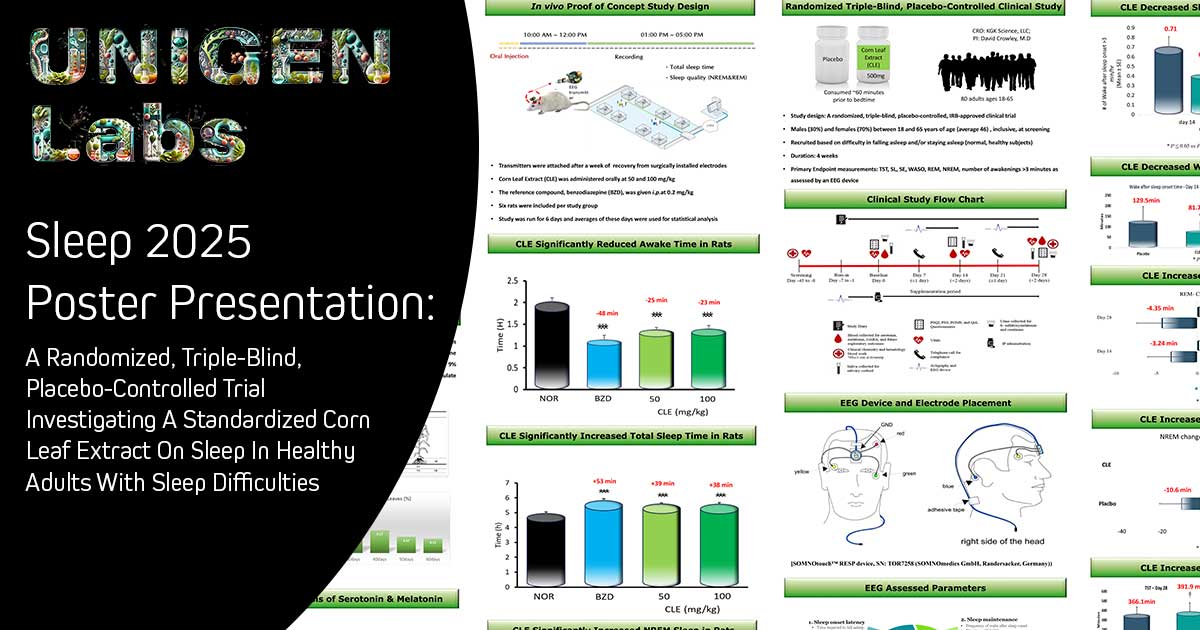Promising pre-clinical research published on Unigen’s Attenutin™ respiratory support composition
Tacoma, Washington – SEPTEMBER 22, 2023:
Unigen’s pre-clinical white paper evaluating its standardized botanical antioxidant composition, Attenutin™, has been published on the efficacy in attenuating acute inflammatory lung injury and sepsis. The peer-reviewed manuscript was published open-access September 11th in Molecules.
Current therapies for air-pollution-induced respiratory problems are inadequate, observed Dr. Qi Jia, Unigen’s Chief Scientific Officer. Dietary antioxidants from natural sources could serve as a frontline defense against air-pollution-induced oxidative stress and lung damage.
HMGB1 is a key late inflammatory mediator upregulated during air-pollution-induced oxidative stress. Extracellular HMGB1 accumulation in the airways and lungs plays a significant role in the pathogenesis of inflammatory lung injury. Decreasing extracellular HMBG1 levels may restore innate immune cell functions to protect the lungs from harmful injuries.
The in vivo study was led by Dr. Mesfin Yimam, DVM, MS, Unigen’s Director of Pre-Clinical Research. In the Unigen study, murine models of disorders, including hyperoxia-exposed, bacterial-challenged acute lung injury, LPS-induced sepsis, and LPS-induced acute inflammatory lung injury models were utilized. The effect of the botanical composition on phagocytic activity and HMGB1 release was assessed using hyperoxia-stressed cultured macrophages. Analyses, such as hematoxylin-eosin (HE) staining for lung tissue damage evaluation, ELISA for inflammatory cytokines and chemokines, Western blot analysis for proteins, including extracellular HMGB1, and bacterial counts in the lungs and airways, were performed.
Statistically significant decreases in mortality (50%), proinflammatory cytokines (TNF-, IL-1 , IL-6) and chemokines (CINC-3) in serum and bronchoalveolar lavage fluid (BALF), and increased bacterial clearance from airways and lungs; reduced airway total protein, and decreased extracellular HMGB1 were observed in in vivo studies. A statistically significant 75.9% reduction in the level of extracellular HMGB1 and an increase in phagocytosis were observed in cultured macrophages.
Dr. Jia emphasized that the compilations of data in this report strongly suggest that the botanical composition could be indicated for oxidative-stress-induced lung damage protection, possibly through attenuation of increased extracellular HMGB1 accumulation. Reducing the level of extracellular HMGB1 induced by oxidative stress and/or respiratory tract infection could have a significant impact on protecting the lungs from injury and preserving normal physiological respiratory tract functions. Further confirmatory studies focused on the impact of the composition on this molecular target in humans is suggested.
[These research results do not necessarily reflect the health claims that will be made on finished products containing Attenutin™ and are presented for educational purposes only.]
About Unigen, Inc.
Unigen discovers, develops, and manufactures proprietary natural-product active ingredients for dietary supplements, cosmetic and personal care products, prescription medical food and botanical drug products. The Company discovers its ingredients through its PhytoLogix® high-throughput screening approach applied to a proprietary well-annotated collection of botanicals and a legacy mining approach applied to botanicals having known medicinal benefits.
Mechanism of action, safety, and efficacy are documented with extensive preclinical in vitro and by human clinical studies. Unigen protects its discoveries with issued patents and patent filings in all major territories and manufactures its products to GMP standards. Unigen commercializes its proprietary ingredients through licensing and ingredient supply alliances with commercial partners engaged in the manufacture, distribution, and marketing of end-products in each of Unigen’s target markets.
Contact:
Kathy Markham, Marketing Manager
Email: kmarkham@unigen.net


